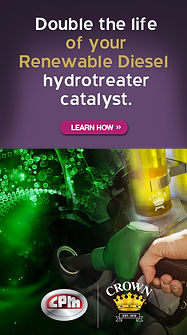- Safran
1st rescue helicopter flies on sustainable aviation fuel

A rescue helicopter has flown on sustainable aviation fuel (SAF) for the first time, achieving a new milestone in international aviation. Operated by the German nonprofit organization ADAC Luftrettung, the Airbus H145 rescue helicopter had its Arriel 2E engines ceremonially refueled with SAF at the air rescue station at Munich’s Harlaching Clinic in the presence of the ADAC Foundation’s board of directors, as well as the managing directors and top management of ADAC Luftrettung, the engine manufacturer Safran Helicopter Engines, the helicopter manufacturer Airbus Helicopters, and the energy company TotalEnergies. Together, these companies will be a driving force in the decarbonization of helicopter flight by moving away from fossil fuels.
The biofuel fueling the H145 is a second-generation biofuel—the SAF of choice of the aviation industry—which significantly reduces CO2 emissions because they are produced from residual and waste materials, usually from the food industry, such as used vegetable oils and fats. As a result, the fuel has no negative impact on agricultural food production. The fuel used for the first rescue helicopter flight in Munich was produced by TotalEnergies at its refinery in Normandy from used cooking oil.
With this SAF, the ADAC Luftrettung fleet could achieve a 33 percent reduction in CO2 emissions, which, with more than 50,000 rescue missions and more than 3.3 million kilometers flown per year, equates to a reduction of around 6,000 tons of CO2.
ADAC Luftrettung and engine manufacturer Safran Helicopter Engines share the same ambition to contribute to the development of SAF usage including up to 100 percent. To this effect they are launching a project with one ADAC rescue helicopter in Cologne. The project will study all aspects of biofuel usage on the H145, with an operational campaign to start as early as summer 2021.
Following the biofuel premiere, the managing directors of the two companies, Frédéric Bruder, managing director of ADAC Luftrettung, and Franck Saudo, CEO Safran Helicopter Engines, signed a long-term agreement on SAF, which envisages increasing the blending ratio of biofuel to up to 100 percent in the coming years and subsequently also promoting the use of synthetic e-fuel, also known as power-To-liquid kerosene (PTL), another drop-in alternative to fossil fuels, which along with the use of biofuel will allow aviation to get closer to climate-neutral aviation. PTL refers to the generation of liquid fuels produced using electrical energy from renewable sources.
Biofuel is currently certified and approved for aviation use in a maximum blend of 50 percent with conventional kerosene of the JET-A1 type. The ADAC rescue helicopter was flown on a 40 percent blend.
Andrea David, CEO of the ADAC Foundation, to which ADAC Luftrettung belongs, says that, “for us, the sustainable aviation fuel pilot project is a first big step on the way to a climate-neutral ADAC Foundation and air rescue service, and our contribution as a nonprofit organization to achieving the climate protection goals of Germany and Europe.”
Bruder added, “We want to be a pioneer in reducing CO2 in emergency medical services with environmentally friendly kerosene. This means we must also develop air rescue technologically so that the use of SAF is future-proof in the longer term. To achieve this, we have strong partners at our side. Importantly, SAF is an officially approved fuel, which means that flight and patient safety remain at the highest level.”
Saudo said Safran is leading engine industry efforts to reduce helicopter carbon dioxide emissions. “Along with this historic first flight, we signed an agreement with ADAC Luftrettung to expand the use of SAF in their Safran-powered helicopter fleet,” he said. “All Safran engines are certified to operate on up to 50 percent sustainable fuel, including biofuel. Our goal is to reach 100 percent.”
Bruno Even, CEO of Airbus Helicopters, said pioneering sustainable aviation is a clear ambition for Airbus and enabling the use of SAF is an important milestone for the industry. “Today’s event is the first step in reinforcing Airbus Helicopters’ position of having the lowest CO2 emission product range in the world,” he said.
Christian Cabrol, managing director Total Germany, added, “TotalEnergies has set itself the target to get to net-zero emissions together with society by 2050. By developing biofuels, we are helping our aviation industry customers reduce the carbon intensity of the energy products they use. Our biokerosene (SAF) can be used directly and without any modification to the logistical infrastructure for storage and distribution or to the aircraft and engines. We are experiencing this in practice today. In March, we successfully started producing sustainable aviation fuels in France and will now continue this in Germany.”




















-adjusted-to-spec.jpg)



